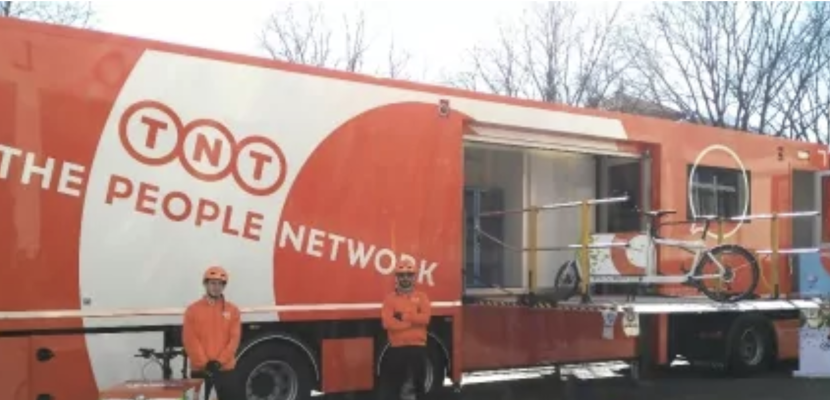
The Mobile Depot: a logistic facilitation in the Turin City Centre

About this good practice
The Mobile Depot (MD) was piloted in the city of Turin to decrease the number of last-mile deliveries and ease traffic congestion in the city centre. The MD is an evolution of the single truck trailer that contains parcels, envelopes and cargo bikes themselves. The aim is to operate the last-mile delivery operations from a single “facility”, from which goods are picked up and delivered by the fleet cargo-bikes provided by the MD itself and the already operating ones, throughout the city centre, and capable of aggregating the ecosystem of stakeholders and managing distribution processes from production to delivery in real time. In the pilot, the role of the municipality was to provide the authorisations for the road deployment. The MD is, in fact, parked and acts as an outpost for the bikes dedicated to deliveries and pick-ups. It is manned during the day and will return to the TNT depot in the evening together with the goods collected and the bikes themselves. The trailer, indeed, once parked, is transformed by automated mobile appendages into a real operations centre, 14 metres long and 6.5 metres wide, equipped with reception, offices, warehouse, security cage and toilets. It should be emphasised that the solution proposed by TNT was not designed as a hub for several logistics’ operators, but as a single TNT facility. Furthermore, it was not a B2C solution, not even for private entities. The benefit related to citizens is the reduction of congestion in the city centre.
Expert opinion
Resources needed
The production and development costs of the Mobile Depot and the implementation of in-vehicle/roadside sensors amount to 65,000€. The pilot was conducted under the public funds from MIUR: PON REC 2007-2013 - National Operational Programme for Research and Competitiveness 2007-2013.
Evidence of success
The average delivery time decreases both because the time taken by bikes to prepare before deliveries decreases, and because the average distances per stop are reduced due to better geographical distribution. The analysis of the KPIs shows that the average number of operations per hour increased significantly on the days of the experiment (average 46%) allowing the bikers to deliver more packages and envelopes (+10%) in a shorter time (-13%). Each cargo-bike saves 250g of CO2 per km travelled.
Potential for learning or transfer
In experimenting with MD, the Municipality followed a path of coordination between key actors to integrate public and private ITS systems to pave the way to a sustainable model of system governance. To design a new paradigm of urban freight distribution management, the first step was the signing of a dedicated Framework Agreement to develop and share the most significant experiences in the field of urban freight distribution. Among the results of the experimentation:
• Enlarging the time windows to enter the city-center;
• Allowing the use of reserved lanes for recognized city logistics vehicles;
• Use of specific parking spots;
• Progressive tax system in order to stimulate registration (no tax for first 2 years in order to give companies the opportunity to invest in the onboard system).
All the above mentioned results show the potential that this logistic solution could bring to the cities struggling with city centre-last mile related issues, due to intense traffic congestions.
Further information
Good practice owner
You can contact the good practice owner below for more detailed information.

